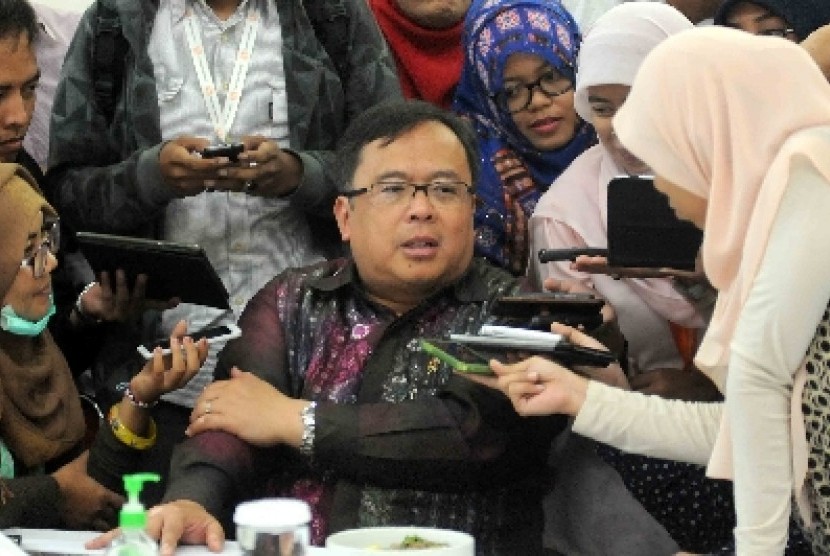REPUBLIKA.CO.ID, JAKARTA -- The final growth assumption, as set in the Draft 2016 State Budget, will be made in accordance with the dynamics of global economic developments, Finance Minister Bambang Brodjonegoro stated.
"We will see later if it needs to be adjusted to an appropriate rate. We are still monitoring the latest dynamics of global developments. The government will not object to revising the growth rate (in the draft state budget) if required," the finance minister stated after attending a plenary session of the House of Representatives (DPR) here on Thursday.
The DPR's plenary session was held to hear the response of the House factions on the Draft 2016 State Budget.
The finance minister explained that the government had set the economic growth assumption at 5.5 percent in the Draft 2016 State Budget after taking into account the global economic conditions, which are expected to start recovering next year.
However, he remarked that the assumed 5.5 percent economic growth in the draft state budget, which will be deliberated between the government and the Budgetary Commission of the DPR to formulate a final growth rate, could still be revised.
"We see the latest developments because the global economic outlook for the next year still looks good," stated the finance minister.
During the plenary session of the DPR, several factions voiced their opinions that the economic growth assumption set at 5.5 percent was still too optimistic due to the sluggish economic conditions in various parts of the world, including in Indonesia.
However, if the government is determined to maintain its growth assumption at 5.5 percent, the House factions urged the government to work harder, so that the country's economy will grow in line with the expectation.
The Central Bureau of Statistics (BPS) recently announced that Indonesia's economic growth in the first semester of 2015 reached 4.7 percent and is forecast to grow to 5.2 percent until the end of the year.
The slowdown in economic growth was partly due to the contraction in household consumption and investment. In addition, exports also recorded a negative growth due to the fall in the prices of commodities across the world and a reduction in the demand for Indonesia's exports in destination countries.


